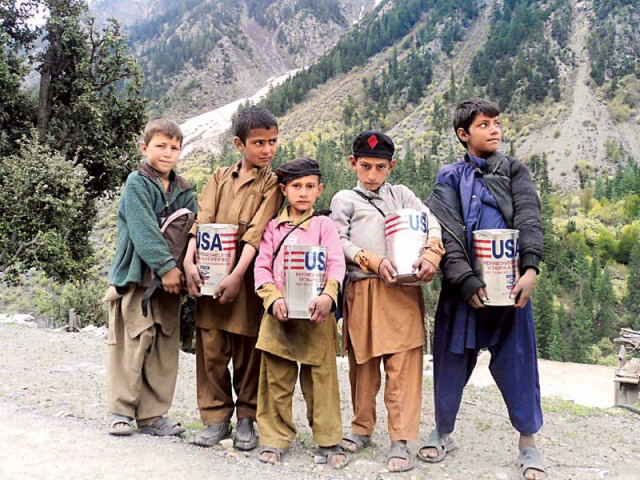In Swat, a delectable reason to be in primary school
610 primary schools have benefited from the WFP scheme since 2009.

Apart from providing education, primary schools have an added incentive for children in upper Swat. They get free food rations for attending classes under the United Nations World Food Safety Net Feeding Programme. This has subsequently upped the enrolment rate in the schools by 60 per cent, it has been learnt.
Students have been provided energy biscuits and cooking oil under the World Food Program-sponsored programme since 2009. Teachers said that the project is achieving more than their expectations.
“Apart from increasing enrolment in primary schools, the programme aims to eliminate child labour and improve attendance,” Programme Manager Amjad Ali told The Express Tribune. He said that around 130,000 children and teachers in 610 primary schools of the upper Swat have benefited from the programme.
Balancing an oil canister in his hands, Muhammad Ali, a second grader who was returning home on Wednesday, said joyously: “We get parathas (oiled flatbread) with tea at school daily in the morning, which we did not get before.”
Another schoolboy, also holding an oil canister he got from school, seemed even more jubilant than his classmates. “We are getting double advantage: study and food. We love our school,” they said in unison.
“This is an effective way of attracting children towards schools,” said Kalam Education Department Centre In-charge Shah Nazar. “We don’t need to launch new campaigns to attract students; we are already short of space to accommodate them,” he said. Nazar added the programme has also motivated parents who were initially sceptical about sending their children to school and were more inclined towards sending them to work instead.
Abdul Ghafar Khan, a teacher in Kalam, concurred. He said that with the incentive of food, even street children have been admitted to schools.
Published in The Express Tribune, June 1st, 2012.



















COMMENTS
Comments are moderated and generally will be posted if they are on-topic and not abusive.
For more information, please see our Comments FAQ